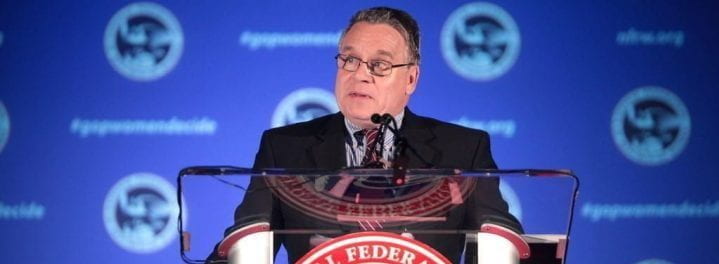By Huihua Niu
The U.S. Congress passed Hong Kong Human Rights and Democracy Act without objection on 25 Wednesday, and will soon be handed over for consideration.
Jeff Sagnip, a spokesman for Republican Congressman Chris Smith, said that Congress vote will be scheduled for October, most likely after the US holiday Columbus Day. Rep. Smith is one of the supporters of Hong Kong Human Rights and Democracy Act.
Mr Smith said, that ‘Sino-British Joint Declaration and the Basic Law guarantee Hong Kong’s 50 years of constant autonomy,’ but China’s current behaviour is eroding the autonomy and harming the human rights and freedom of Hong Kong people.
Hong Kong’s autonomy has been severely eroded after the reunification with China in 1997, and the US government needs to strengthen supervision of Hong Kong’s governance.”
In Beijing, Chinese Foreign Ministry spokesperson Geng Shuang said.
“The Hong Kong Human Rights and Democracy Act disregarded the facts, reversed black and white, and openly acted for Hong Kong’s radical forces and violent elements. The Chinese expressed strong indignation and resolute opposition.
The U.S. Congress ignores the bad behaviour of Hong Kong’s radical forces and violent elements, ignores the public opinion demands of various sectors of the Hong Kong society, ignores the basic norms of international relations, and insists on deliberating on the passage of the above-mentioned Hong Kong-related bills. The support of the forces and violent elements is a gross interference in China’s internal affairs, which fully exposes the sinister intentions of some people in the United States to disrupt Hong Kong and contain China’s development.”
Mr Shuang was clear that Hong Kong’s prosperity and stability were in the interests of all parties including that of the United States.
“The United States has more than 80,000 inhabitants, more than 1,300 enterprises and a large amount of investment in Hong Kong. The US Congress have passed the relevant bills. It will only encourage the arrogance of Hong Kong’s radical forces and violent elements, and further disrupt Hong Kong. The result will not only harm China’s interests but also harm the interests of the United States.”
The contents of the Hong Kong Human Rights and Democracy Act as amended by the US senate includes;
- Request the US Secretary of State to submit a report to the National Assembly each year to examine whether Hong Kong still has sufficient ‘autonomy’ to enjoy the special treatment granted by the United States;
- If Hong Kong is going to legislate on national security legislation in the future, the US President and the Secretary of State will examine the relevant legislation, whether it will contravene the Sino-British Joint Declaration and the human rights of Hong Kong citizens and foreign residents.
- If a Hong Kong citizen is arrested by the government for participating in a non-violent struggle, the US will not refuse to grant a student or work visa on this ground. The US will instruct the consulate to maintain an active list and record some detentions by the Chinese and Hong Kong governments. Arrested and targeted, and US officials will work with countries with similar ideas, calling on them to take similar actions to treat the arrested;
- The programme refers to the political improvement process in Hong Kong and hopes to ensure that Hong Kong voters have the right to elect the Chief Executive and all Legislative Council members by universal suffrage. The contents of the draft clearly point out that it will support Hong Kong in establishing a ‘true democratic option’, that is, Hong Kong voters can ‘freely and fairly nominate and vote’ and, in 2020, be able to openly elect all Legislative Council members directly;
- The US Department of Commerce will submit a report to the Congressional Committee on the 180th to assess whether Hong Kong can implement the US dual-use export control legislation for sensitive military and commercial purposes, as well as sanctions imposed by the United States or the United Nations on North Korea or Iran. Whenever possible, relevant US departments will review whether there are related products, re-exports through Hong Kong, and use as a large-scale monitoring and ‘social credit’ system. The draft specifically mentions that China may use Hong Kong as an independent gateway and may use Hong Kong as a conduit for Chinese input sensitive technology in the name of Dawan District;
- The draft requires the President of the United States to submit a list of sanctions to the relevant committees of the National Assembly. These individuals are accused of suppressing fundamental freedoms in Hong Kong, may be frozen in US assets or refuse entry. The list states that those who may have participated in the extradition of individuals to mainland China for surveillance, defamation, detention, abuse or forced confession.

